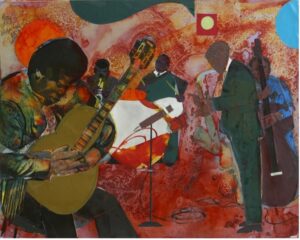Historiography, Theory and Methods in Visual Culture
Credentials: ART HISTORY 801
Website: Professor Laurie Beth Clark
Phone: Tuesdays and Thursdays 5 PM - 7 PM

This seminar offers an overview of the study of visual cultures, a dynamic, multi-stranded, and still changing field in critical dialogue with cultural studies and performance studies, ethnic studies and critical race theory, queer studies and feminist theory, trans studies and theory, disability studies and crip theory. It pursues multiple critical and visual practices using theories and methods important to the field’s formation as well as those driving the field’s future, though the selected readings are necessarily partial and the syllabus is an invitation to further study. We will take advantage of the programming of the Center for Visual Cultures to frame our encounter with the leading questions driving the field. This means specifically an engagement with the CVC 2024-2025 theme of abolition.
The seminar emphasizes the development of essential skills in critical reading, research, analysis, writing, and presentation methods. While it is the core requirement for the Doctoral Minor and Graduate Certificate in Visual Cultures, our commitment to interdisciplinarity means that graduate students from any field or program might benefit. The course assists students in the formation of a network and intellectual community while discovering research resources to support their own work. In addition to weekly readings and discussion, work for the course will include the generation of “burning questions” as the catalysts of inquiry, examining and analyzing the visual, producing and delivering oral presentations, and writing work that corresponds to specific kinds of professional writing. Students will produce scholarly writing at a scale and for an audience appropriate to their own research agendas and will also produce visual materials as a form of knowledge production. (For example, students in ITS may produce significant seminar papers suitable for revision toward the Prelim A portfolio while art students might develop hybrid investigations that serves their studio practices).